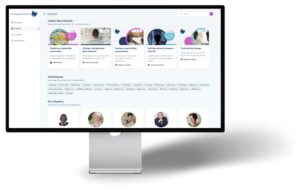Change Management for Leaders: Do You Have the Change Skills Needed for Your Role?
Written by Melanie Franklin
Change management for leaders within your team is so important in today’s face paced world.
As a change professional, I live and breathe the worlds of behavioural change, business transformation, neuroscience for change at work, programme management of large-scale transformations.
But… this is my full-time career, so it is my choice. However, I work with lots of leaders, managers and specialists in their own roles (marketing, operations, logistics, procurement, finance, customer service) who are “accidental” change managers. This is where Change Management for Leaders comes into play.
The Importance of Change Management for Leaders
There is an expectation that along with the day job, leaders and managers are responsible for the local planning, resourcing and implementation of change activities. They must do their job using existing ways of working and take responsibility for constantly improving, updating and changing these ways of working.
Change Skills all Leaders and Managers Should Have
I carried out some analysis recently to understand how this expectation for change capability is appearing in role descriptions. If you are a manager applying for your next role, you can use this list to prepare your answers for interview. If you are a change professional, you can use this list to identify the support needed by your stakeholders.
1. Supporting your team during uncertainty
Find some “points of certainty” which fall into two categories:
- Certainty about the purpose of your work, which is probably not changing. The reasons you do the things you do, and who you do them for are often stable, it is how we do our work that is constantly changing
- What you want to achieve is more certain than how you will get there, so emphasis the destination whilst admitting that there will be lots of experiments and new ideas throughout the journey.
2. Be organised
- Change can create chaos. Success requires an organised approach to identifying the gap between the future and the current ways of working
- Be aware of all the documentation in circulation relevant to your team so that everything is updated as part of the change
- Ensure all aspects of the new ways of working are captured so there is a true picture of how your team now works
3. Ability to pilot, prototype and experiment
- Be clear that you do not expect everything to go right first time and that you do not have all the answers.
- Role model curiosity and a willingness to try.
- Be honest about what you don’t know, and help your team see that making mistakes while learning is normal and expected.
4. Do not leave anyone behind
- Explain changes in simple, practical terms.
- Make sure your team know what’s changing, and why it matters to them personally.
- Have regular, honest conversations with your team, minimise formal presentations.
5. Creating motivation and resilience
- Watch for signs that people are struggling – missed deadlines, increased frustration, or reverting to old ways of working.
- Be willing to dig beneath the surface and listen carefully to find out what is really causing the resistance and develop short, focused activities to overcome them
6. Understand how to build new habits
- Breaking big changes into smaller, manageable steps.
- Focus on one or two new behaviours at a time, rather than trying to change everything at once.
- Celebrate small wins and make it easy for people to do the right thing.
Change for Non-Change Managers
Many of the reports describing the level of burn-out for line managers make the point that they are expected to lead the change activities for their team, but are not supported with training.
Some organisations have comprehensive “change agent development programmes” but many do not. If you are working for one of these organisations, I have developed a master class specifically for you, called Change for Non-Change Managers
- If you are a line manager, you will find all the sessions avoid change jargon, give you practical techniques and things you can do to make dealing with change easier.
- If you are a change professional, the master class gives you lots of ideas for coaching sessions and workshop activities you can host to support your stakeholders in coping with change.

